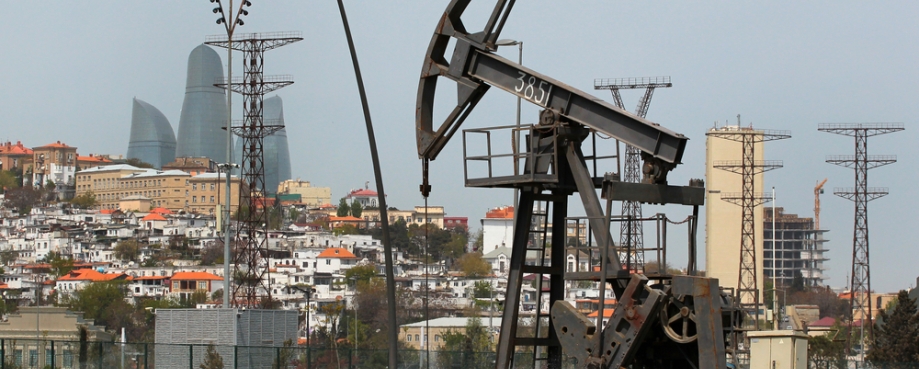
Last week, in conversation with colleagues, I was reminded of a brilliant book, published by ETI NGO member Oxfam back in 2010, Deconstructing Development Discourse: Buzzwords and Fuzzwords. The book unpacks some of the most overused, and often loosely defined, words in the so-called international development sector. Words like, empowerment, participation, capacity building, partnership. The thrust of the conversation last week was what does ‘just transition’ actually mean, and is it just the new ‘buzzword’ for the same stuff activists have been working on for decades?
A fair challenge, I must admit…
Where did just transition come from?
Just transition is not a new concept, its heritage stretches back to trade union organising in the 1980s. However, in recent years the concept has taken centre stage in climate change negotiations. ‘Just transition’ was enshrined in the preamble to the 2015 Paris climate change agreement. And at COP28 in Dubai in 2023 a three year work programme on just transition was agreed. How to operationalise the work programme will be high on the agenda at COP29 in Baku over the next fortnight.
What does it mean, and is it anything new?
As explained elsewhere, I tend to lean on this definition from the ILO: “Greening the economy in a way that is as fair and inclusive as possible to everyone concerned, creating decent work opportunities and leaving no one behind”.
So, is this new or more of the same, under a new, slightly jazzier, name?
The truth is workers’ rights activists have been fighting for decent work and fair, inclusive economies since the dawn of the labour movement. So nothing new there!
But what just transitions offers is a recognition that times have changed. The era of climate crisis is upon us. Recent events in Spain, California and Bangladesh are awful reminders of this. But in addition, the progress that we’re seeing, insufficient as it is, is also confirmation that new economic opportunities are emerging.
In summary I would say just transition is both old and new. It’s about continuing the fight for workers’ rights and decent work but doing so with renewed energy and urgency - given both the devastating impacts of climate crisis and the emerging economic opportunities offered through collective efforts to keep the world within 1.5 degrees of warming.
But what’s any of this got to do with business?
At a recent ETI member event, one of our company members described how participating in one of our workstreams enabled it to ‘hold a mirror up to its own business practices’ and identify how these impact workers thousands of miles away supplying their products. For me this was a powerful analogy. My brilliant colleague Melissa Karadana has blogged about some of these practices here.
Business practices and just transitions
What we’re beginning to understand is that many of these business practices have a direct bearing on working conditions and progress towards a just transition.
Short-term contracts and transactional relationships
Short-term contracts and the ever-present risk of buyers taking their business elsewhere is a constant worry for so many suppliers within global supply chains. This is captured in Melissa’s blog through an emphasis on ‘eroding partnerships’ and ‘power imbalances’ between suppliers and buyers. As one supplier explained: "It used to be a partnership. Now, if we don’t agree to their terms, they take their business elsewhere." Recent research conducted by ETI Bangladesh found similar asymmetries of power.
In response to this reality, Principle two of the Common Framework for Purchasing Practices, developed by ETI and a consortium of partners, emphases the importance of ‘equal partnership’ within supplier-buyer relationships. It cites “a shared responsibility to improve working conditions”, which includes “building long-term, secure sourcing relationships”. Time and again, we hear from suppliers that when they have long-term contracts with buyers they are able to invest to improve social and environmental outcomes.
Pricing and costing
As explained by Melissa, unsustainable pricing practices are “one of the most urgent and frequently mentioned issues” by suppliers when discussing the business practices of their buyers. Suppliers Melissa met in Bangladesh and India emphasised that the systems buyers insist they use for product costing fail to account for environmental sustainability costs: “We get a standard open costing template that doesn’t account for environmental or social costs. These costs are there, but if we can’t reflect them, it will ultimately impact other budget lines.”
Relatedly, ETI Bangladesh’s research documents how buyers require suppliers to demonstrate improved environmental performance and reduced greenhouse gas emissions, but continue to demand low prices for products. One supplier interviewed stated, “We have taken the initiative to be green and in return, we can expect them, as our business partners, to support us by offering higher price. But, when the green and the non-green factories are receiving the same price from brands, where’s the extra benefit?”
Together these practices – inadequate costing processes, and low prices – compound the disincentives arising from short-term contracts and prevent suppliers from making necessary investments in improved environmental performance and climate adaptation.
Time pressures and last-minute changes to orders
At a recent ETI webinar, Dr Shoaib Ahmed presented findings from interviews with over 100 workers in Bangladesh. Amongst other shocking practices, Dr Ahmed described the intense time pressure that supplier factories are under to meet deadlines imposed by buyers. This was corroborated by other presenters at the session who described how intense competition between suppliers leads them to accept untenable deadlines, which in turn become even more challenging when poor quality tech packs lead to last minute changes to orders. Dr Ahmed described how these time pressures lead to increased use of air freight over sea freight: increasing shipping costs four times over, leaving suppliers making a loss, whilst driving-up greenhouse gas emissions and subjecting workers to longer working hours and harsher working environments. Once again, how to address these poor business practices is explained in the Common Framework.
Living wages
Living wages are essential to achieving decent work, and are specified under ETI Base Code clause 5. In recent years, we have seen increased efforts on living wages and some progress in some sectors. But the climate crisis is increasing costs for workers. From higher electricity bills due to increased need for cooling equipment, such as fans during extreme heat, to repair and renovation work on homes in the aftermath of floods, to increased health care costs as the prevalence of hazards such as vector borne disease grow. Living wages are urgently needed to support workers to adapt to the realities of climate change and its impacts on them and their family members.
Social dialogue
Social dialogue between employers and employees is at the heart of just transitions. Good examples do exist, such as Colombia’s banana industry and ETI Bangladesh’s work in apparel and textile factories, but these are few and far between. There needs to be a shift in perspective, from businesses viewing and treating workers simply as factors of production, to treating workers as key stakeholders in the creation of shared value – both rightsholders and holders of knowledge and expertise on how work needs to adapt in the era of climate crisis.
Leveraging the buzz and avoiding the fuzz
My colleagues are right to challenge the substance behind the term just transitions. There is a risk that it becomes another buzzword or fuzzword. But surely the antidote to this lies in action: using the just transitions framing as a way of examining and addressing current practices in supply chains that increase risks for workers and prevent suppliers and workers from making the necessary changes for both climate adaptation and mitigation. None of us have all the answers, but as we’ve tried to explain above, many of the changes that we need to make are not entirely new. We don’t need to wait for all the answers before taking these first steps to set us off in the right direction. For the next two weeks the world’s attention will be on the negotiations in Baku, and rightly so. However, this should not prevent us as actors committed to responsible business conduct from taking action to integrate just transitions into our own plans and activities now.

